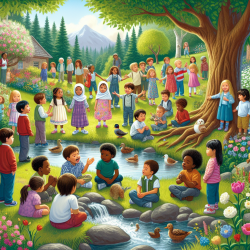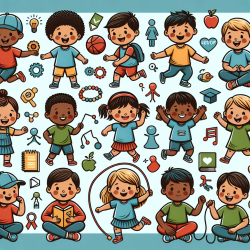As practitioners dedicated to enhancing children’s speech, language, and communication skills, we constantly seek evidence-based methods to improve outcomes. One emerging area of interest is the impact of natural outdoor spaces on children’s development. The systematic review protocol, The Impact of Time Spent in Natural Outdoor Spaces on Children’s Language, Communication and Social Skills, sheds light on this intriguing topic.
Why Nature Matters
Time spent in natural outdoor spaces has been linked to a multitude of benefits for children, including improved physical health, mental well-being, and cognitive development. However, the specific impacts on language, communication, and social skills are less well-documented. The systematic review aims to synthesize existing qualitative and quantitative evidence to fill this gap.
Key Findings
Here are some compelling insights from the review:
- Children use five times more words when playing outdoors compared to indoors.
- Outdoor play enhances children’s sense of well-being, self-esteem, and confidence.
- Children’s language skills, including vocabulary and grammar, show significant improvement with outdoor activities.
- Natural environments foster better social interactions, including improved parent-child communication.
Implementing Outdoor Activities
As practitioners, incorporating outdoor activities into therapy sessions can be a game-changer. Here are some practical steps:
- Unstructured Play: Encourage children to explore and interact with nature freely. This type of play promotes creativity and spontaneous use of language.
- Structured Activities: Plan specific language and communication exercises that can be conducted outdoors, such as storytelling sessions or nature scavenger hunts.
- Parental Involvement: Educate parents about the benefits of outdoor play and provide them with simple activities they can do with their children.
Encouraging Further Research
While the current evidence is promising, more research is needed to understand the full impact of outdoor play on children’s language and social skills. Practitioners are encouraged to engage in or support research efforts in this area.
Conclusion
Incorporating natural outdoor spaces into speech and language therapy can offer unique benefits for children. By leveraging the power of nature, we can create more effective and engaging therapeutic interventions.
To read the original research paper, please follow this link: The Impact of Time Spent in Natural Outdoor Spaces on Children’s Language, Communication and Social Skills: A Systematic Review Protocol.










